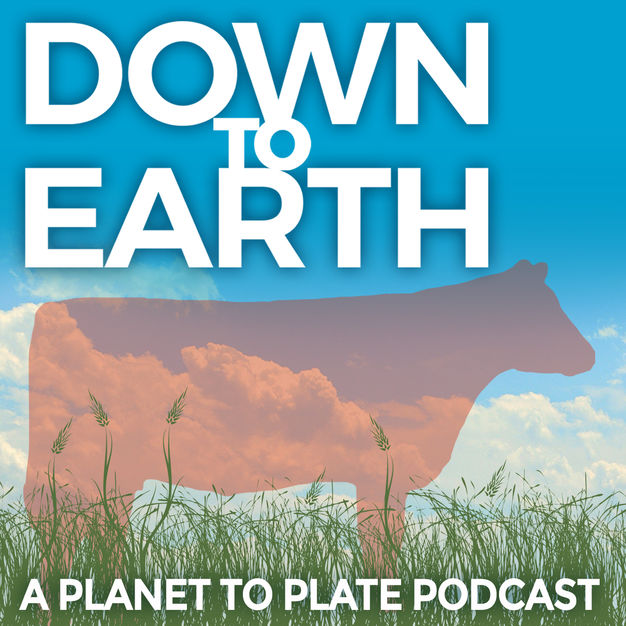
Down to Earth: The Planet to Plate Podcast
Quivira Coalition
Down to Earth is a podcast about hope. As climate change collides with our industrial food system, we focus not on doom but instead on people who are developing practical, innovative solutions. We invite you to meet farmers, ranchers, scientists, land managers, writers, and many others on a mission to create a world in which the food we eat is healthy—for us, for the land and water from which it springs, for the lives and livelihoods of the producers, and for the planet.
- 52 minutes 34 secondsDucks, cows, and resilience
Since the 1930s, Ducks Unlimited has been protecting habitat for ducks and other migrating waterfowl, and has conserved over 18 million acres of wetlands and bird habitat in North America and beyond. Founded by hunters, the organization originally focused on duck breeding habitat in Canadian prairie lands. Over the decades their conservation work expanded to including the US, Mexico, and other parts of Latin America, and embraces both public and private lands. We talk with Billy Gascoigne is DU's Director of Agriculture & Strategic Partnerships, and Ryan Taylor, Director Of Public Policy for the Dakotas and Montana and North Dakota cattle rancher, about how conservation of waterfowl habitat is a win-win for farmers and ranchers—as well as water, wildlife, communities, and climate. By promoting voluntary conservation efforts, they build long-term partnerships that aim for long-term resilience and farmer profitability.
7 January 2025, 5:16 am - 51 minutes 55 secondsAnimal welfare is good for everyone—including farmers
Adam Mason is Senior Manager of Farm Animal Welfare and Environmental Policy at the ASPCA, the American Society of the Prevention of Cruelty to Animals. In our conversation he talks about their multi-pronged approach to getting animals out of buildings and into cruelty-free lives in which they can express their natural instincts and behaviors. Farmers who make the transition from industrial/conventional livestock practices to animal-friendly practices report better lives for the animals and the farmers themselves, with benefits for land and water health, and often more autonomy and greater profitability.
17 December 2024, 4:36 am - 48 minutes 56 seconds1000 Farms Initiative: A new paradigm of science in service of farmers
Entomologist, agroecologist, farmer, rancher, and beekeeper Dr. Jonathan Lundgren was a scientist with USDA Agricultural Research Service for 11 years. He left to undertake regenerative agriculture science studies that embraced a larger paradigm, looking at the interconnection of all the living beings on the farm and in the community, from the soil microbiome to the insects to the plants and animals — and the farmers. He's founder and director of the Ecdysis Foundation, and CEO of Blue Dasher Farm, which work as a partnership. The 1000 Farms Initiative is producing extremely detailed agricultural data from farms across North America — and giving the data away for free.
3 December 2024, 5:00 am - 46 minutes 22 secondsVirtual fencing—new technology that benefits both ranching and land conservation
Virtual fencing is a new technology that employs GPS collars to keep animals in "virtual" pastures—so instead of using physical fences, the fence lines are drawn on a computer screen, and the collars direct the animals' movements through sound cues and mild electrical stimulation. This saves ranchers on labor and materials, allows more adaptive and flexible pasture management, and allows free range for wildlife. The Nature Conservancy, whose mission is to tackle climate change by protecting land and water and fostering a healthy food system, is partnering with ranches across the US to help ranchers adopt virtual fencing systems. We talk to William Burnidge, deputy director of The Nature Conservancy’s Regenerative Grazing Lands strategy in North America, and Danna Camblin of Camblin Livestock, whose ranch has been successfully employing virtual fencing for the last few years.
12 November 2024, 4:35 am - 44 minutes 48 secondsRegenerating a desert wetland oasis
Don Boyd spent a year on the Bosque del Apache National Wildlife Refuge in central New Mexico, photographing, living, and finding a deep connection to land, water, and animals—including the many migrating birds that live part-time in this magical desert wetland on the Rio Grande. Boyd connected with David and Hui-Chun Johnson, and together they are working with a small team to restore 38 acres on the refuge that have been degraded by "conventional" agricultural practices and invasive plant species. They have completed the first year of the five-year BEAM project (Biologically Enhanced Agricultural Management) using cover-crops, no-till methods, and compost tea, with the goal of creating more self-sustaining, regenerative agricultural fields that provide food for the many wildlife species on the refuge, water conservation, and a model for regenerative practices for other agrarians in New Mexico and beyond.
29 October 2024, 4:31 am - 46 minutes 16 secondsThe awe-inspiring beauty hidden in our food
Artist and science educator Robert Dash creates art from micro- and macroscopic photographs of food crops. His new book, Food Planet Future: The Art of Turning Food and Climate Perils into Possibilities, explores both the science of our food system and the role of art in finding a more healthy and loving way forward.
15 October 2024, 6:51 am - 48 minutes 12 secondsPainterland Sisters Yogurt: Regeneration at every step from farmer to consumer
Hayley and Stephanie Painter grew up on a fourth-generation dairy farm in northern Pennsylvania, and while it was an idyllic childhood, the instability of milk prices continually threatened their family's livelihood. The sisters took it upon themselves to save the farm by creating a yogurt brand, Painterland Sisters, and in the space of two years have gotten their product into stores in all 50 states and are using milk not only from their own farm but from neighboring producers. Hayley Painter talks about the practices of regenerative agriculture from a multi-dimensional perspective––not only soil health, but also animal and farmer health, food processing that retains nutrients, healthy transportation, responsible retail, and more. The key is diversity, including a diversity of farms and farm sizes, brands, and retail outlets.
30 September 2024, 11:58 pm - 47 minutes 32 secondsAgave, mesquite, and a carbon drawdown game-changer
André Leu is co-founder and International Director of Regeneration International, an organization that promotes food, farming, and land use systems that regenerate and stabilize climate systems. He’s author of the books, Myths of Safe Pesticides and Poisoning our Children, and is co-author with Dr. Vandana Shiva of Biodiversity, Agroecology, and Regenerative Agriculture. He has a Doctorate of Science in agricultural and environmental systems and teaches at universities and speaks at numerous conferences and United Nations events. His new book is The Regenerative Agriculture Solution: A Revolutionary Approach to Building Soil, Creating Climate Resilience, and Supporting Human and Planetary Health, published by Chelsea Green Press. Leu is also a regenerative tropical fruit and cattle farmer in Australia, where he's been farming since the 1970s.
17 September 2024, 6:12 pm - 1 hour 1 minuteCommerce, the destruction of nature, and the uphill path to sustainability
Environmental historian Sara Dant’s book Losing Eden traces the history of the American West from the time of elephants and camels to the near destruction of entire ecosystems—and the movement to bring nature and industry into balance.
3 September 2024, 5:15 am - 41 minutes 48 secondsColorado peaches: delicious for the eaters, fair for the workers
Gwen Cameron grew up on Rancho Durazno, her family's peach farm. She was pursuing a career in journalism when her father asked her if she wanted to come back and take over the farm. She agreed and never looked back; now she's running a farm that uses regenerative principles to keep the land healthy for their 40 acres of peaches, cherries, apricots, plums, and melons. Her Mexican field workers come through a visa program, and together they are building their participation in the Fair Food Program, which ensures safe working conditions and fair wages.
20 August 2024, 5:55 pm - 53 minutes 44 secondsBlack farmers regenerating land in the face of historical and current racism
P. Wade Ross's great grandfather was a runaway slave who bought land in Texas. His descendants founded Texas Small Farmers and Ranchers Community Based Organization, a non-profit that helps Black farmers and ranchers to succeed in regenerative agriculture in the face the barriers of structural racism, trauma, imposter syndrome, and the many challenges that all farmers face. Founded by Ross's parents, W. Wade and Anita Ross, the non-profit, which recently celebrated its 25th anniversary, provides outreach, organizing, education, and technical assistance to agrarians across Texas, with a focus on regenerative agriculture.
6 August 2024, 6:19 am - More Episodes? Get the App
Your feedback is valuable to us. Should you encounter any bugs, glitches, lack of functionality or other problems, please email us on [email protected] or join Moon.FM Telegram Group where you can talk directly to the dev team who are happy to answer any queries.
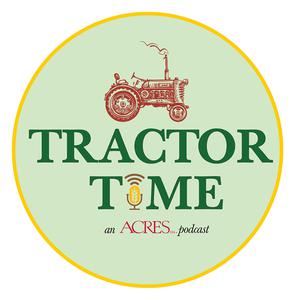 AcresUSA: Tractor Time
AcresUSA: Tractor Time
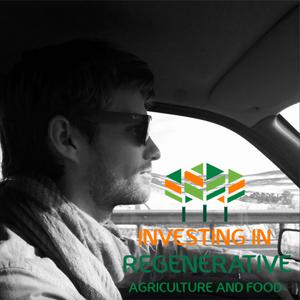 Investing in Regenerative Agriculture and Food
Investing in Regenerative Agriculture and Food
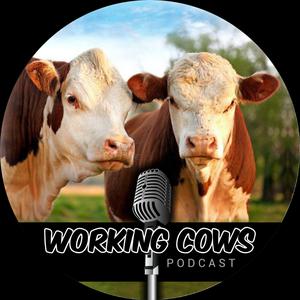 Working Cows
Working Cows
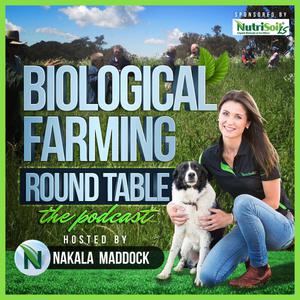 Biological Farming Round Table
Biological Farming Round Table
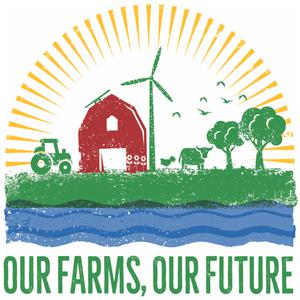 Our Farms, Our Future
Our Farms, Our Future
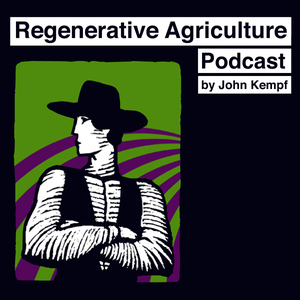 Regenerative Agriculture Podcast
Regenerative Agriculture Podcast